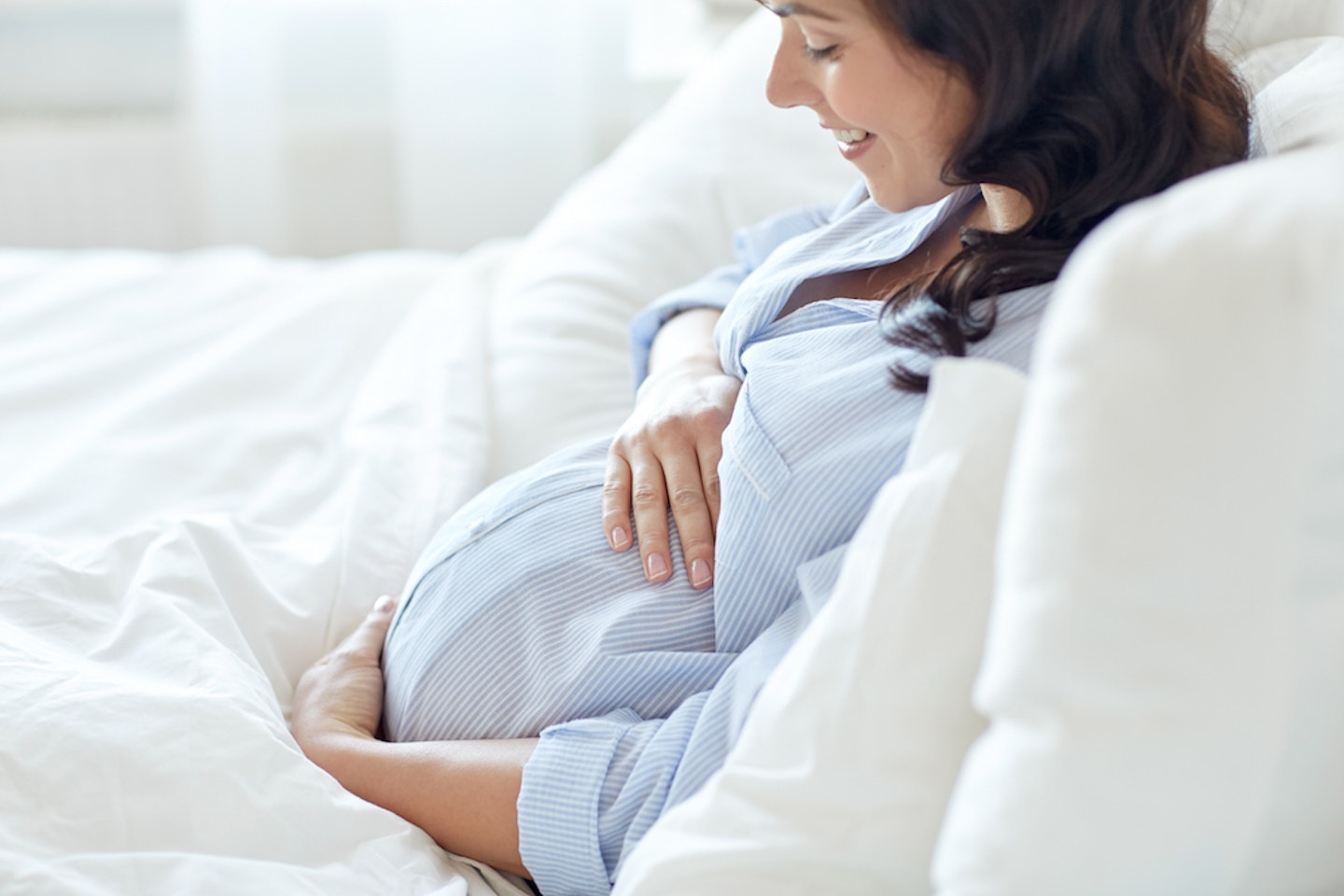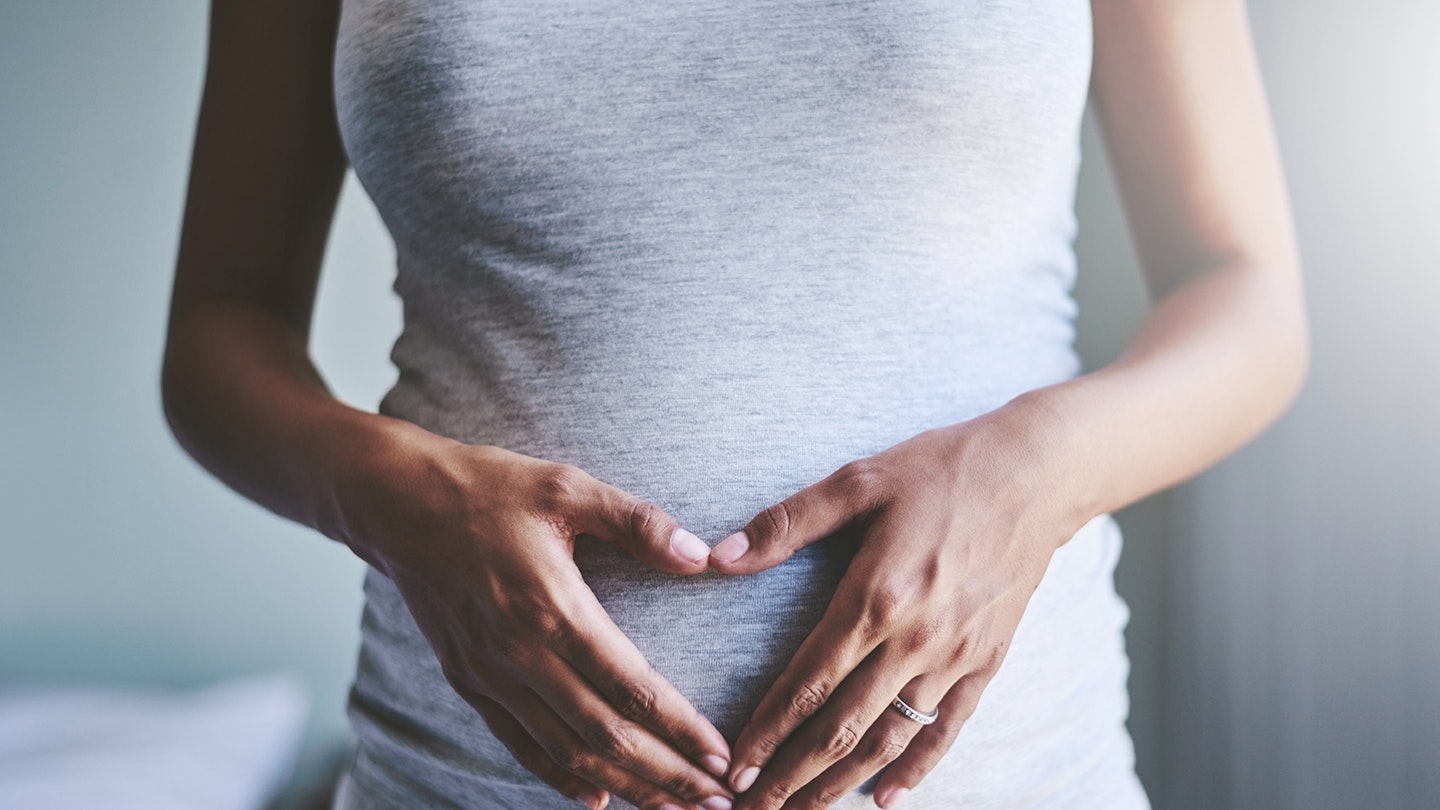‘I had my suspicions, but then one day, you looked really ill and rough and I thought, “Yeah, she’s blatantly pregnant”.
Well, firstly - that was great to hear from a colleague recently. But it also encapsulated all the frustrations I’d been feeling about the sexism of the ‘12-week rule’ when it comes to revealing your pregnancy.
I recently ‘outed’ myself at work as a pregnant person and felt free to finally tell extended family, acquaintances and people who I didn’t trust to not write something ‘incriminating’ on Facebook before that. At that point, I was 14 weeks pregnant and had just had my scan (thanks London waiting lists). I was ‘safe’ and, custom told me, I was now allowed to tell everyone why I’d been eating biscuits at my desk at half-hourly intervals (not because I’d really let loose on the post-wedding diet, but because it was the only thing that stopped me feeling like I was in the back of an Uber after eight pints of wine).
Why I’d been forgetting words in meetings. And why I was so tired that 4pm meetings were a special kind of torture.

I’d told close family members earlier in my pregnancy and a selection of friends - mostly because I wanted to share the life-changing news, but also because 10 weeks(the time between my scan and finding out I was pregnant) is way too long to pretend that I just really liked sparkling water. In fact, the first refused wine sent most friends’ eyebrows shooting up their foreheads.
But even then I was Queen of the Caveat. ‘I know it’s early,’ ‘It could all come to nothing’, ‘Anything could still happen at this point,’, ‘One in four pregnancies end in miscarriage, so…’ I’d quickly footnote, whenever people asked how far along I was. Sometimes because I felt like some friends did feel like I was jumping the gun and telling them too early. And each time I said something like that, I felt like I was betraying myself a bit, apologising, and I hated it.
To add to the tiredness, sickness and general ‘Oh sh*it, I’m actually having a baby-ness’, I felt angry.
"Why was having to hide all of my physical and emotional symptoms for more than a third of pregnancy?"
Of course, the answer is that we’re encouraged to wait until after 12 weeks of pregnancy (and our first scan) to reveal our news, because before then, the risk of miscarriage is significantly higher. And, it’s really, really important for me to say here that it if you’ve chosen to wait until then to tell people you’re pregnant, that is, of course, your prerogative. I understand that many women will have a multitude of reasons, like previous miscarriages, why they might want to wait.
But for me, I wasn’t really happy - I was superstitious and societally pressured into waiting and it didn’t feel like a choice. There were people I’d garnered sympathy from for everything from a paper-cut to a sniffle - now, I was undergoing one of the most significant physical and mental changes of my life and I had to stay silent. And why? Because I might have miscarried, and, if that happened, no-one wanted to hear about it? Might I’ve been ‘embarrassed’?
I would’ve had to tell everyone that I’d failed? But to me, if that had happened, if anything I’d be more likely to need help, support and time off work - and then, ironically, would’ve had to tell those people that I had been pregnant anyway. What are we really saying to women when we’re saying they should wait until 12 weeks? Are we saying that we don’t want to know about them if they lose their baby - suffering potentially one of the most upsetting times of their lives? That they’re only three-quarters of pregnancies are palatable to us? Who is it protecting?
Following the logic, ultimately I felt like the ‘12 week rule’ was more about not wanting to hear about any ‘women’s problems’ - from the tiredness and nauseousness to the fact that it could end in miscarriage. Like anything ultimately bloody, upsetting and female shouldn’t be aired or shared. It’s a peculiarly Victorian attitude to women’s bodies that seems out-dated in almost every other arena of life now.
It’s a sanitised view of pregnancy that skips out the sicky and potentially painful (physically and emotionally) bits and says, ‘Come to us when you’re at that bit where you’re glowing, safe (as if any step is completely safe) and ideally with a perfect, slightly-curved stomach’. It’s sexist and it stinks. It has echoes of all the other ‘rules’ women are expected to follow to make everything more palatable - like the ‘three-date rule’, a sign of respectability and societal acceptability. The ultimate, ‘Oh, it’s ok now’.
I can’t speak to the experiences of women who’ve miscarried, but in speaking to friends and reading about other women’s stories, I’ve gathered that for many of them, the silence around miscarriage is an additional pain they have to bear. I feel that the way we treat the first three months of pregnancy, like something you should keep to yourself just in case something goes wrong, encourages and allows some of this silence to continue - and it’s not fair.
I recently felt it was ‘safe’ to get my ‘Baby on Board’ badge - but of course, I don’t always feel like I need it. I needed it when I was nauseous, exhausted and sweating at eight weeks along, grabbing the pole, praying that someone with a seat got off the tube - and then watching a grown man shove me out of the way to steal the seat. Oh, they were fun times. Most annoyingly, it was me who chose to follow the rules and so I did it to myself.
I don’t know what’s to come over the next five months - but I do know that if I’m lucky enough to get pregnant again, I won’t be waiting until society deems is acceptable for me to share the news. You’ll know why I’m chomping on a 10 am biscuit.
Now read:
